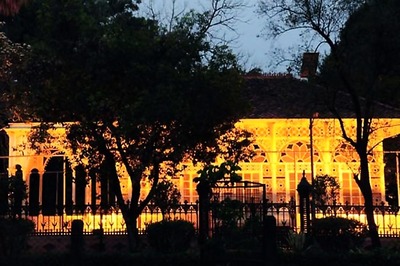
views
New Delhi: The Supreme Court on Wednesday indicated that it will not make adultery a gender-neutral law and that it will rather examine if it should remain a criminal offence at all.
Commencing the hearing on validity of Section 497 of the Indian Penal Code (IPC), a Constitution Bench headed by Chief Justice of India Dipak Misra observed that the law will not be touched to make adultery an offence also for women.
"We make it very clear that we will not touch the law to make it an offence for women too. We will test the validity of Section 497 on Article 14," observed the Bench.
Section 497 makes adultery an offence only with respect to a man who has a relationship with somebody's wife. The wife is considered neither adulterous nor an abettor in law, while the man faces a jail term of up to five years.
Another peculiar aspect of Section 497 is the fact that the fulcrum of the offence is gone if consent or connivance of the husband can be established.
The Bench, citing this part of the 15-year-old law, on Wednesday said that the entire Section will be struck down if it is held violative of right to equality of women, who are treated inferior to their husbands.
During the brief hearing, the Bench further observed that adultery is already a ground of divorce.
"This is also an aspect that adultery has been laid down as a ground of divorce. There are other civil remedies too provided under different statutes. So this is also a pertinent issue whether adultery requires to remain a criminal offence at all," said the Bench.
It fixed the case on Thursday for detailed hearing.
The other judges on the Bench include Justices RF Nariman, AM Khanwilkar, DY Chandrachud and Indu Malhotra.
A PIL moved by Kerala-native Joseph Shine has urged the apex court to take a relook at the validity of Section 497 on the grounds that it was discriminatory and implied gender bias.
It also pointed out that a complete immunity from criminal prosecution was sought to be given to women under Article 15(3), which is primarily meant for granting affirmative rights to certain sections but not to shield them from prosecution.
During a previous hearing, the Court had questioned the correctness of the law as it apparently patronised women.
"How can a law patronise women by saying women are always victims in a case of adultery? Isn't such a law discriminatory and implies gender bias? By saying that the offence is not committed if the woman's husband gives his consent, isn't the law reducing a woman into a commodity... a chattel?" it had then asked.


















Comments
0 comment